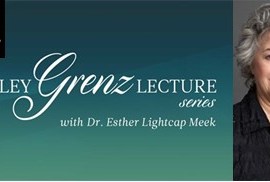It was in the 1990’s, toward the end of my grad school days when I first began to engage “postmodernity” to describe the cultural angst and cynicism in response to modern ascertains of certainty, knowledge, and such. By the time I was pioneering a new church community in Cascadia I had embraced postmodernity as a gift. In many ways postmodernity played a vital role in maturing my faith from the fearful conservative evangelism of my youth to a more robust spirituality better able to hold complexity and open up to what is real. For a number of years I immersed myself in the philosophy, art, architecture, and poetry of postmodernity… and then I didn’t.
As grateful as I was for the freedom and tools of deconstruction; and the awareness of the always already presence of the deconstruction within beliefs, practices, or values resonated with my experience of reality, postmodernity could only take me so far. And while the acknowledgement that words are social constructs which fail to convey the depth or ‘truth’ of anything or experience, still liberates… so I quit reading and thinking about postmodernity years ago.
It was like, “ok, so I’ve deconstructed what was handed to me… now what?”
Working with students and on the ground parish leaders, and listening to my own “now what?” quest reveals something of an ability to hold both both the modern and postmodern unto a different more constructive way of being. This dynamic is beginning to be referred to “metamodernity.”

In the above video philosophers Robin van den Akker and Timotheus Vermeulen talk about the concept of metamodernism, the waning of irony and the new forms of sincerity emerging in 21st century culture (their collection of essays – co-edited with Alison Gibbons is great – though a little pricey). Whereas the folks over at Wisecrack Edition, in the video below, look at the life/art of Shia Labeouf as a kind of case study of metamodernity. As a standalone book, I’ve appreciated, Metamodernism: The Future of Theory, by Jason Ananda Josephson Storm.
While the language of metamodernity is not necessary new it offers categories to better appreciate, articulate, and locate the structure of feeling of this era.
Peace, dwight



